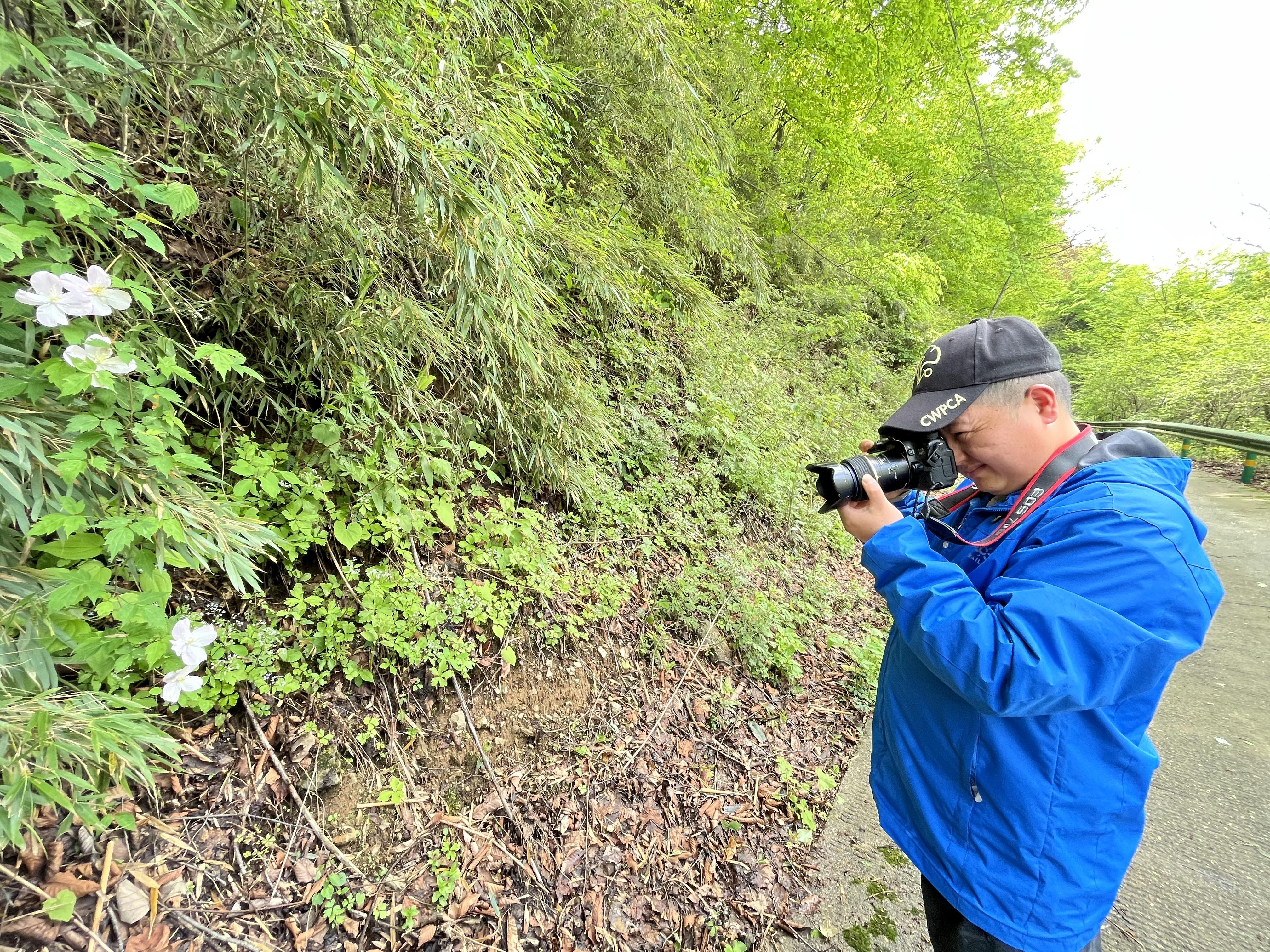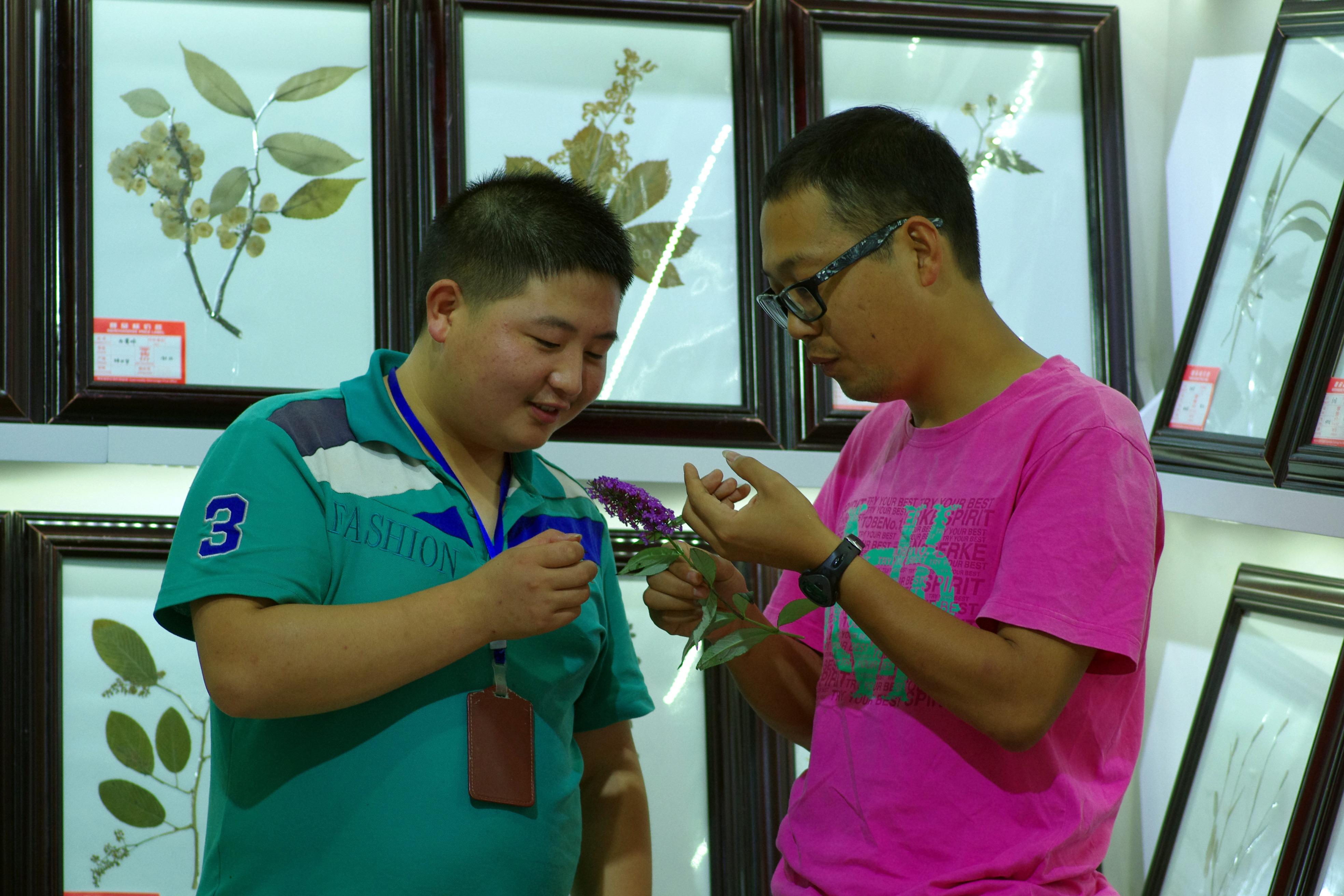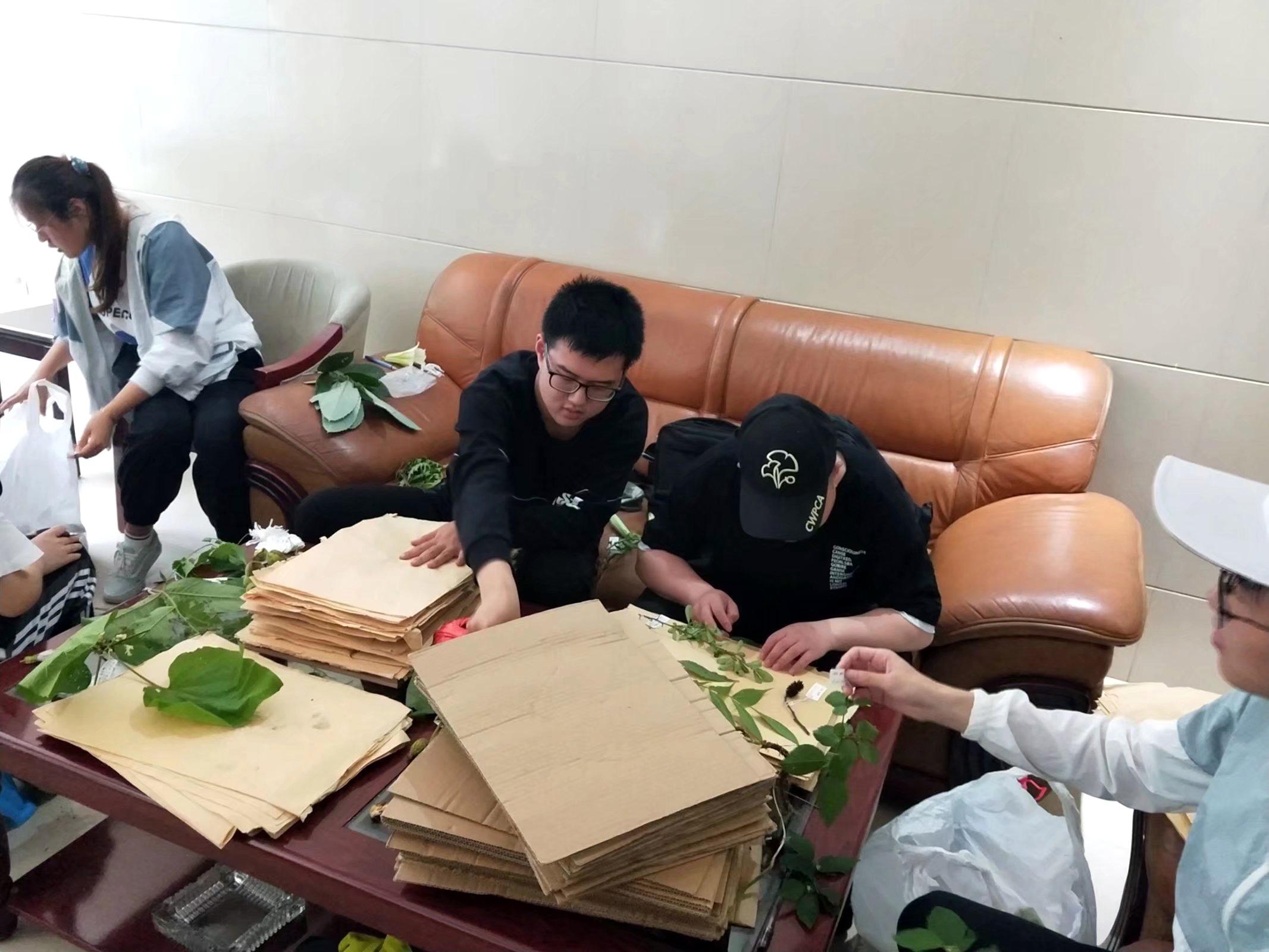Encounter with botany instructor sets Guanmenshan Scenic Area employee on path to professionalism
 Tan Fei takes photos of flowers of clematis in Shennongjia, Hubei province, last month. (CHEN LIANG / CHINA DAILY)
Tan Fei takes photos of flowers of clematis in Shennongjia, Hubei province, last month. (CHEN LIANG / CHINA DAILY)
In Muyu town, the administrative seat of the Shennongjia Forest Area in Hubei province, Tan Fei is a well-known figure. When people are asked about the 29-year-old resident, they usually describe him as a "good lad", or as "fond of learning".
Both descriptions are accurate, as Tan's passion for learning about local flora has made him one of the most knowledgeable individuals on the plants of Shennongjia. A biodiversity hot spot and a UNESCO World Nature Heritage site, Shennongjia has more than 4,000 vascular plant species, and Tan is able to identify about half of them.
Few people know even a little bit of plant taxonomy, especially at the grassroots level. In teaching him (Tan Fei), I also wanted to help train someone to work in Shennongjia.
Du Wei, botanist from Wuhan University in Hubei province
After graduating from junior high school, Tan, who comes from a farming family in a village about 10 minutes drive from Muyu, began studying at a junior college in 2011, where he majored in tourism. In the summer of 2012, he took an internship at the Guanmenshan Scenic Area with some of his classmates.
There, he learned how to make herbariums for sale to visitors as souvenirs.
A tourist attraction dedicated to the popularization of science and home to museums and a botanical garden, Guanmenshan has also long been a field study center for many university students majoring in biology in Hubei.
That summer, Tan met a group of students and their instructors from Wuhan University. One of the instructors, Du Wei, told Tan that many of the plant specimens were wrongly identified, which triggered his interest in botany.
During their 10-day visit, the Wuhan students explored the forest by day, and their teachers gave classes in the evening. Tan sat in on all the botany classes, which were taught by four instructors, including Du, who was a doctoral candidate at the time.
"After the classes, I fell in love with botany," Tan said.
 Tan (second from left) makes plant specimens with college students he teaches during their summer field studies in 2021. (PHOTO PROVIDED TO CHINA DAILY)
Tan (second from left) makes plant specimens with college students he teaches during their summer field studies in 2021. (PHOTO PROVIDED TO CHINA DAILY)
Interning at Guanmenshan again in the summer of 2013, Tan again met Du and his students. This time, he got the chance to know Du.
He had many questions about botany and wanted to know the names of plants in the forest. "Du gave me the answers," Tan said.
Du, who now teaches and does research at Wuhan University after completing his doctorate in 2013, remembers "Little Chunky", Tan's nickname, as being very interesting.
"He would visit us and hang around us every chance he got," Du recalled.
In 2014, Tan graduated from junior college and started working at the Guanmenshan Scenic Area. The same year, Du was sent by the university to work with the administration of the Shennongjia National Nature Reserve as part of a government project to help with conservation and research at the reserve. The botanist, who has a special interest in Hubei's plants, had visited Shennongjia — the largest nature sanctuary in the province — every year since 2008, and would work in the area for a year.
Tan seized the opportunity to ask Du to take him on as his apprentice, and the botanist agreed.
"I wanted to help him learn something useful, something that could change his life in the future," Du said. "Few people know even a little bit of plant taxonomy, especially at the grassroots level. In teaching him, I also wanted to help train someone to work in Shennongjia."
In his spare time, Tan joined Du in exploring the forest and learned how to identify its many plant species. In 2015, Du published a book about Shennongjia's plants with two other authors. "I joked with Tan, saying, 'If I leave Shennongjia, I hope you can be No 1 (in the area's plant taxonomy)'," Du said.
Tan bought a computer in 2015 so that he could study botany online. Following Du's suggestion, he also bought a secondhand camera in 2017 and started taking photos of plants.
 Du Wei (right) teaches Tan to identify a plant species in a specimen hall in the Guanmenshan Scenic Area in Shennongjia in 2013. (PHOTO PROVIDED TO CHINA DAILY)
Du Wei (right) teaches Tan to identify a plant species in a specimen hall in the Guanmenshan Scenic Area in Shennongjia in 2013. (PHOTO PROVIDED TO CHINA DAILY)
He would send photos of any plants he couldn't identify to Du for help. Later, he joined a number of online chat rooms dedicated to different plant families and uploaded his photos to some popular plant websites. Over the years, he has spent around 1,000 yuan ($140) buying books on botany, and his photos have been published in four books.
Tan is now known to many botanists, and if they need specimens of certain plant species, they ask him for help. He charges between 300-500 yuan per species and spends most of his days off collecting plant specimens for researchers around the country.
In 2015, he was invited to teach a group of primary students to identify plants at a nature education summer camp in Guanmenshan and later began helping college students with field studies. He also teaches them to identify plants and prepare specimens.
"Many colleges work with our park," Tan said. "So I was allowed to do this as part of my job."
He can earn an extra 2,000 yuan a week as an instructor.
Last year, he earned his associate's degree via an online course, and he plans to continue his studies at college, as a teacher at the South-Central Minzu University in Wuhan has agreed to be his postgraduate tutor if he is able to pass his postgraduate entrance examination.
"But English and biochemistry are just too difficult for me," he said.
Living in an apartment bought for him in Muyu with his mother, a retired road maintenance worker, Tan spends most of his spare time on his passion for Shennongjia's plants.
Many residents consider him a local plant expert, but Du still feels that the local government is indifferent to homegrown talent like Tan.
"His work includes cleaning the scenic area and patrolling the park," Du said.
"To be honest, that's a waste of talent. But I have encouraged him to continue his studies and to believe in himself."


